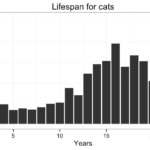Why Does My Dog Lick Me When I’m Sick
Why Does Your Dog Lick You When You’re Sick: The Science and Psychology of Canine Comfort
When you’re feeling under the weather, your dog may offer a furry form of sympathy: licking your face, hands, or feet. While some people find this behavior annoying or gross, others feel comforted by the affectionate gesture. But why does your dog do it? Is there a biological basis for this behavior, or is it just a quirk of canine culture? In this article, we’ll explore the various theories and research on why dogs lick humans when they’re sick, and what this says about our bond with these loyal companions.
The Science of Dog Licking
To understand why dogs lick humans when they’re sick, we need to look at the science behind licking in general. Licking is a natural behavior for dogs, as well as many other animals, such as cats, cows, and even birds. It serves several functions, including grooming (cleaning fur or feathers), communication (sending signals to other animals), and self-soothing (relieving stress or anxiety). In the case of dogs licking humans, all three functions may come into play.
Grooming: Dogs have a strong instinct to keep themselves and their packmates clean. By licking your skin, they can remove dirt, sweat, or other odors that may signal illness or weakness. They may also clean wounds or irritated areas to promote healing. This type of grooming can be beneficial for both parties, as it reduces the risk of infection and fosters social bonding.
Communication: Dogs also use licking as a way to communicate with their human companions. Depending on the context and tone of the lick, a dog can convey different messages. For example, if your dog licks your face while wagging its tail and making eye contact, it may be expressing joy and affection. If your dog licks your hand while growling or baring its teeth, it may be warning you of a potential threat. If your dog licks your feet while whining or pacing, it may be signaling distress or anxiety.
Self-soothing: Finally, dogs may lick humans as a way to soothe themselves during stressful or uncertain situations. For example, if you’re coughing, sneezing, or vomiting, your dog may feel anxious or confused. Licking your skin can provide a calming effect for both of you, as it releases endorphins (feel-good chemicals) in the brain. This is why some people find that their dogs’ licking can help them cope with chronic pain, depression, or other conditions.
The Psychology of Dog Licking
While the science of dog licking can explain some aspects of this behavior, there are also psychological factors at play. Dogs are social animals that rely on human interaction for their physical and emotional well-being. When their owners are sick or injured, they may perceive a change in the social dynamic and try to help in their own way. They may also pick up on subtle cues such as body language, tone of voice, or scent that indicate something is wrong.
In addition, dogs have a remarkable ability to read human emotions and respond accordingly. Studies have shown that dogs can recognize facial expressions, vocal intonation, and even smell changes associated with fear, sadness, or happiness. When their owners are feeling down, dogs may instinctively try to cheer them up by offering affectionate gestures such as licking. This can create a positive feedback loop where both parties benefit from the interaction.
The Cultural Context of Dog Licking
Beyond the scientific and psychological explanations for dog licking humans when they’re sick, there is also a cultural context to consider. In many societies around the world, dogs are seen as symbols of loyalty, protection, and healing. They are valued not only for their practical skills such as hunting or herding, but also for their spiritual qualities such as intuition, empathy, and companionship. In some cultures, dogs are even worshipped as divine beings or revered as sacred creatures.
In this context, dog licking can be seen as a ritual of connection between humans and dogs. It is a way to acknowledge the bond that exists between us, even in times of illness or hardship. It is a reminder that we are not alone, that we have a faithful friend who cares about us unconditionally. It is a source of comfort and hope, a sign that life goes on despite our temporary setbacks.
Conclusion
Why does your dog lick you when you’re sick? The answer is complex and multifaceted. It involves the science of canine behavior, the psychology of human-dog interaction, and the cultural significance of dogs in our lives. By understanding these factors, we can appreciate the depth and richness of our relationship with our furry friends. We can also learn how to respond to their needs and emotions in a more compassionate and effective way. So next time your dog licks you when you’re sick, don’t push them away or scold them. Instead, take a moment to thank them for being there for you when you needed them most. And maybe give them a cuddle or two in return.



